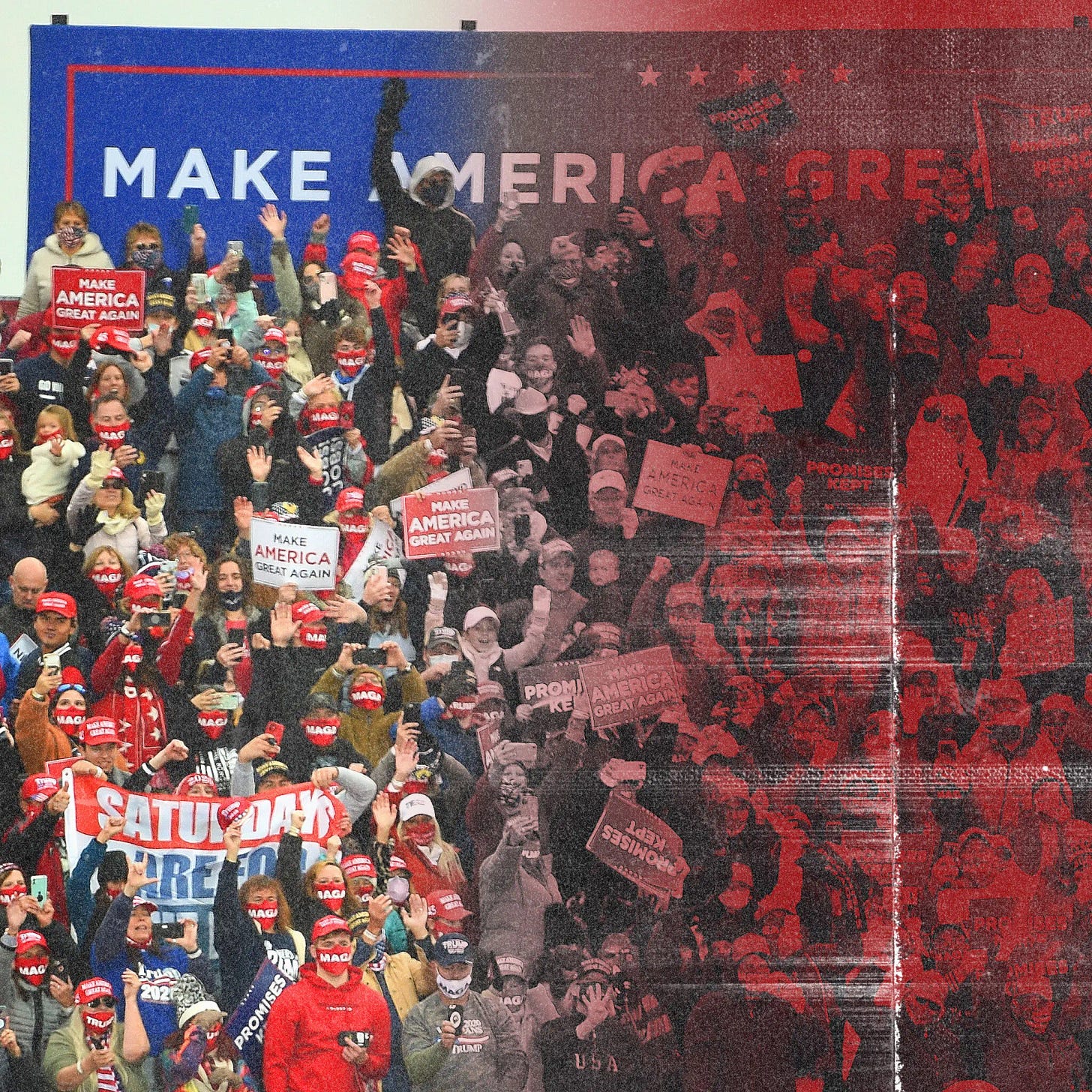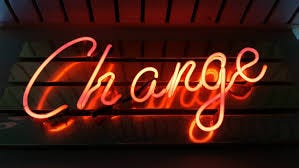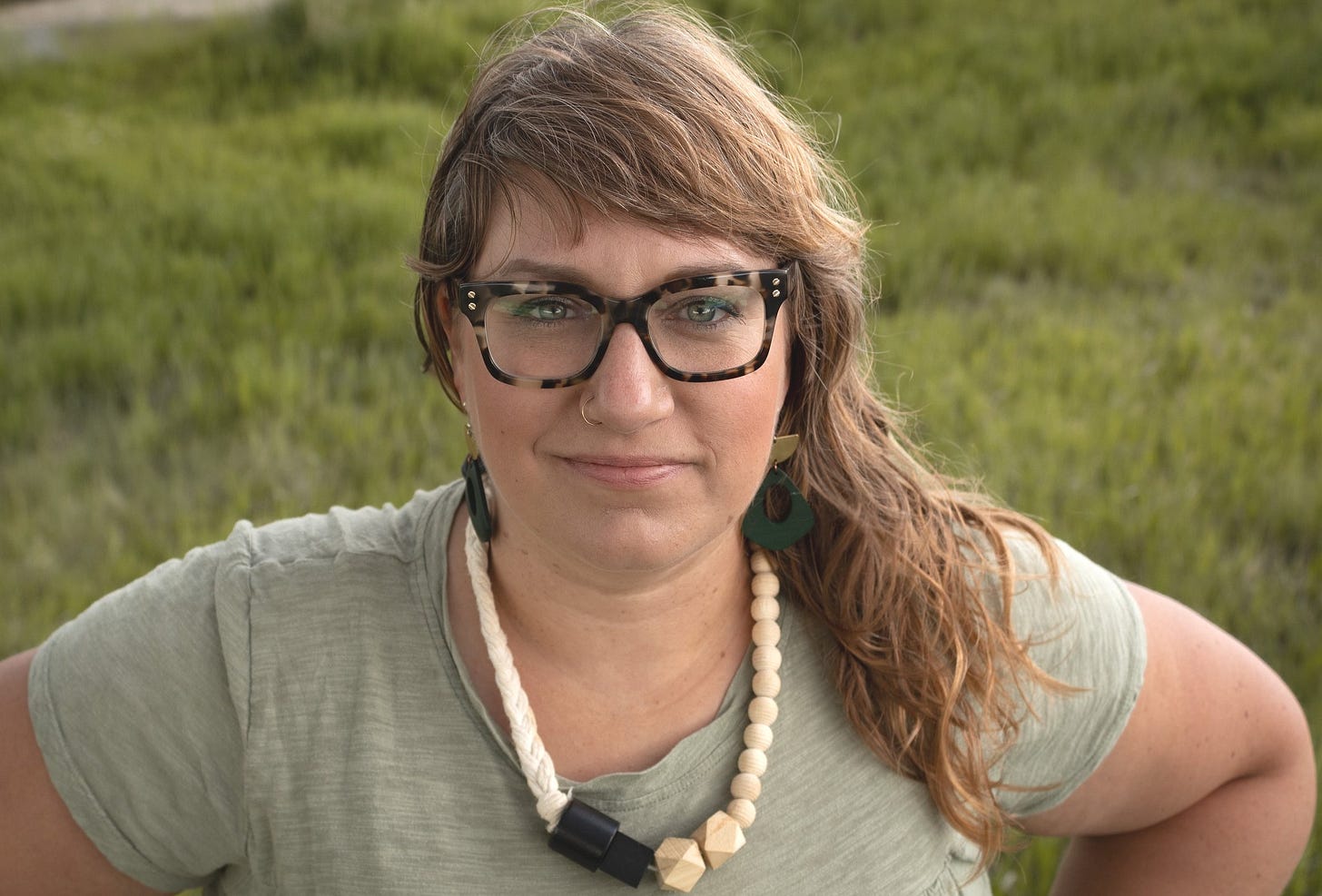the Empathy List #129: What Would it Take to Change Your Mind?
Swapping parties + encouraging others to change their minds.
Hello friend, Liz here.
I’ve heard that the way you tell that you’ve become fluent in a new language is that you start to dream in your adopted tongue. When you dream in your second language, you no longer translate back and forth—your native tongue being your solid ground—because you have adopted a new medium altogether.
As someone who made it to college-level Spanish but never crossed over the invisible line to fluency, I remember feeling consternation hearing stories like this. Would it ever happen to me? When would my body and tongue and subconscious finally accept the other language so that I, too, could experience truly free expression in Spanish?

If you’ve read this newsletter for a while, you know I’m obsessed with the question of how people change. Psychologists now believe that our personalities are more malleable than we once thought (1 point for nurture, 0 for nature). Which raises SO many more questions.
What counts as meaningful and/or permanent change and not just temporary adaptation?
What kinds of experiences change our behaviors, assumptions, beliefs, and most important to me, our norms? Dreaming in Spanish, for example, would be an example of a norm changing, indicating at least a temporary shift in language dominance…which means your neurology must also change to adapt to a new language. (!!)
What blend of internal versus external stimuli causes these changes within us as individuals? And what causes such changes societally, as cultures and nations and tribes?
By the way, if you have thoughts about any of these questions… please chime in and leave a comment!
This obsession with change began in my teenage years. Growing up within the fence of Bill Hybels’ white American evangelicalism, I was taught that change could, perhaps, happen through some mystical intervention, especially if I were addicted to something and needed miraculous healing from said addiction in order to find Jesus and join a nearby nondenom church.
(I always had the most boring testimony. If only I’d taken a puff…)
However, I saw a very different philosophy of change modeled. From my religious elders, I saw that change was actually an authoritarian enterprise. We changed by disciplining our bodies and thoughts into rigid structures—daily Bible study, prayer journaling, carrying 3x5 cards in my pockets for impromptu Bible memorization, snipping my secular CDs in half, total chastity (including hiding my bra straps from my peers’ wandering eyes), occasional 24-hour prayer vigils or trips to play soccer with Mexican children. If I followed Dr. Dobson’s 30-year plan for my life, then I might change into a woman that God liked better. My behavior would change my character. I was an ascetic without ever knowing the word.
But this is not how people change. At least, this is not the whole story of how people change. (Don’t come at me cognitive behavioral therapists!) Change is more complex than dialing in our behaviors.
For example, a few years back, a friend of mine, Sarah Bessey, wrote a widely-shared essay describing how her theology changed in favor of her queer neighbor, an essay she wrote to answer an earnest reader question. Her reader had asked, Sarah, how did you become affirming? What caused you to go all-in on a theology that remains so conflictual amongst Christians? This reader said she actually wanted to believe, she wanted to support her gay friends and family, but she could not make herself make the leap to accepting queer affirmation as “good,” “appropriate,” or “acceptable” theology. (Those are not actual quotes from this reader, just my own interpretation of her letter to Sarah, btw.)
Sarah’s response was generous. She said that for a long time, the penny spun in the air as she read and studied and sought God’s truth about LGBTQ inclusion. But eventually, after an experience with a dear lesbian friend, the penny dropped, and she simply couldn’t believe another way anymore. She knew and loved too many genuine Christians whose sexual orientation also happened to not fit within heteronormativity, Christians who obviously had the Spirit, had callings in the church, and had found freedom in God for themselves. One day, Sarah’s mind just… changed.
I can relate to this. My shift to LGBTQ affirmation at church did not happen because anyone convinced me of anything. I woke up one day thinking that if I had to be wrong in one direction, I wanted to be wrong in the direction of love and inclusion. In particular, I wanted to love my dear friend Steve and his husband. And I gave up trying to pin the argument down and accepted that God’s love is wider than I ever knew, halleluiah.
But I’m not writing about LGBTQ inclusion in the church today, not primarily, though I do think it offers us a positive template by which to examine ourselves.
Consider: how have you changed your mind in the past? What made you rethink your behavior and beliefs? What made you turn around and walk the opposite way?

In the next few weeks, we will be confronted by the division in the U.S., and we will be confronted interpersonally. Many of my family members—and perhaps yours, too—will vote for the opposing side. They will claim to be voting by conscience. They will believe—really believe, not say they believe—they are honoring God with their vote.
And I’ll admit to my cynicism here. I disagree strongly with those who are not voting for VP Kamala Harris.1 I have not hidden my disgust for the Republican candidate and his dehumanizing rhetoric and policies, nor for those who support him within our government. And I have my doubts that those who are voting for the extreme right candidate are doing so out of good intentions only. (What about the racist rhetoric? The greed? The power-hungry authoritarian policy?)
And yet, I urge you (and I) to remember that the people on stage, who hold power to shape systems and institutions, are not the same as the people you know who have signed on to that movement. Those witnessing the movement—whether they perceive themselves to be involved or not—are not the same as those holding the car keys. I believe we have plenty of reason to mistrust the intentions of those in the driver’s seat. But everyday voters? To them, we should extend the benefit of the doubt.
So over the next few weeks, I urge you to approach those with whom you disagree with empathy. Assume their good intentions. You want the same things and fear many of the same things, remember? Because you’re both human beings made in God’s image. So, ask good questions and listen well. And keep asking questions, like Jesus did, drilling down to the root. Above all, prioritize your relationship with the person in front of you. They matter more than any party loyalty.

For myself, when I consider what I might ask my own relatives who vote differently than I do, I keep coming back to this question: what would cause you to change your mind?
I have a hunch that if you’re reading this essay, you may have voted Red in the past too, like I did, but that you’ve switched teams. Now consider why. Dig up the receipts from the bottom of the junk drawer. What made you swap parties? Why do you vote, think, feel the way you do? When did the penny finally drop?
In asking ourselves these questions, we are making ourselves safe spaces for a loved one’s changing mind, too. Out of this well, extending empathy toward our past selves, we are also learning to extend empathy to others. Making yourself “safe” for those who disagree with you is especially important if you’re trying to walk with a person as they reconsider and/or leave the cult of MAGA.2 Be the tender, safe space you needed to change back then; but this time, offer that space to someone else.
Because while this election will eventually end, our relationships won’t. (Hopefully.) So, let’s endeavor to be people who create safety for others to change… when their time comes. (Please, Jesus.)
Take courage and deep breaths, my friends. This election is nearly over. And we will make it to the other side.
Warmly, Liz Charlotte Grant
Your turn: Do you believe people change? Why or why not?
To those who have decided to vote third party, might I ask you to consider this question: would you rather protest in Kamala Harris’s America or Donald Trump’s America?
BY THE WAY, this org helps those who are Leaving Maga. I cannot be more excited to see that some former cult members are turning back and extending a hand to those still enmeshed. There is a way out!!



“I woke up one day thinking that if I had to be wrong in one direction, I wanted to be wrong in the direction of love and inclusion.” Love and respect for the inherent worth and dignity of every being is my guiding star, too. Thank you for raising these vital questions. I’m grateful that we all have the capacity to grow and change and enlarge our perspective and circle of care. Tenderness, curiosity, honest conversations and deep listening play big parts in sparking change.
Shout-out to a fellow church kid with incredibly BORING testimony! It really bothered me that I basically had nothing to say. And yet here we are now on the outside, more or less, where those I knew then would be horrified by my "fall from grace."
I'm obviously very late reading this. The election is over. It feels like the worst has happened, but there's no denying things are about to get much, much worse. Yet your piece about how minutes can change still refreshed me.
Onward and upward, I guess. May genuine relationships, gentle conversations, and fierce love ripple through this nation and the world. The darkness is great, and likely to grow darker, but the glimmers of light may yet grow stronger, for change is always possible.